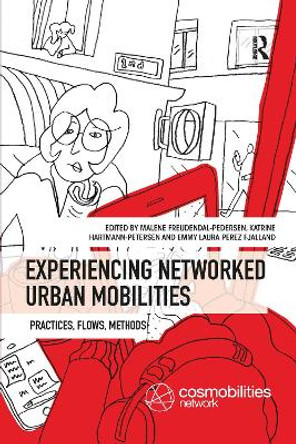Description
Leading experts explore how a situated urban contingency approach engages with different planning interventions, ranging from disciplinary identities and everyday practices to digitalisation for citizen engagement, systems of bureaucratic knowledge production and infrastructural doctrines. Chapters delve into case studies such as the development of affordable housing, professional boundary work in integrating climate change adaptation, and the role of urban experimentation in planning for urban sustainability. The book further demonstrates how context-sensitivity fosters creative knowledge production and more inclusive planning, advocating for the integration of best practices with an urban contingency logic.
Students and scholars of planning and related disciplines such as geography, urban studies, sociology and sustainability studies will find this a vital resource. Practitioners working in planning and climate change mitigation will greatly benefit from this informative book.
About the Author
Edited by Malene Freudendal-Pedersen, Professor of Urban Planning, Daniel Galland, Associate Professor of Urban and Regional Planning and Jens Iuel-Stissing, Associate Professor of Sustainable Transitions, Department of Sustainability and Planning, Aalborg University, Denmark
Reviews
'Planning for Urban Sustainability offers a powerful critique of global urban solutionism while making a compelling case for urban planning rooted in the specificity of place. Through the lens of doctrines, disciplines, and practices, the book shows how urban sustainability emerges not from copying best practices, but from reconfiguring existing socio-technical arrangements, navigating institutional tensions, and engaging with the everyday. Its commitment to experimentation, improvisation, and learning from within planning cultures-rather than outside them-makes this a timely and important contribution for those rethinking the role of planning in the face of climate and social crises. A vital resource for scholars and practitioners committed to situated, just, and context-sensitive urban transitions.' -- Sergio Montero, University of Toronto, Canada
'This book is a valuable contribution to the urban sustainability literature, with nuanced consideration of many examples from Denmark. Analyses of the Finger Plan, social housing, cycling policies, climate adaptation planning, and coastal planning will be useful to both scholars and practitioners.' -- Stephen M. Wheeler, University of California, Davis, USA
'This book is a wakeup call for planners to move away from the impossible dream of ready-made, all-encompassing solutions for urban sustainability. Instead, this book explores "urban contingency" to understand the place-specific conditions that make possible some courses of action but not others. This book demonstrates the enduring influence of Danish cities on planning as laboratories of urban environmental thought. An enriching read for all urban studies and planning scholars.' -- Vanesa Castan Broto, Urban Institute, University of Sheffield, UK
Book Information
ISBN 9781035347476
Author Malene Freudendal-Pedersen
Format Hardback
Page Count 238
Imprint Edward Elgar Publishing Ltd
Publisher Edward Elgar Publishing Ltd




